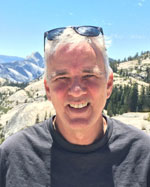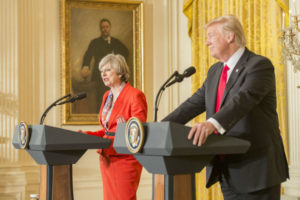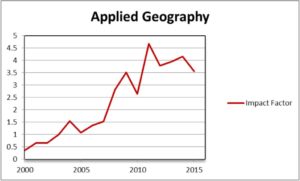Creating and Preserving Actionable and Policy-Relevant Geography
 Ensconced in our academic environs, as students or as faculty, we are sometimes accused of being removed and aloof from the issues of the real world and our research regarded as being of purely scholarly interest. Indeed, there are times for many of us that this may be more than a little bit true. I certainly have not been immune to being intrigued by questions with no apparent implications for the practical problems of the here-and-now. However, today, as often has been the case over its long history, the discipline of geography is being called upon — and called out — because of its importance in identifying and addressing problems of the wider world. Three recent items in the news reminded me of the potential role of geographers and geography in addressing the myriad challenges swirling around us at the present time.
Ensconced in our academic environs, as students or as faculty, we are sometimes accused of being removed and aloof from the issues of the real world and our research regarded as being of purely scholarly interest. Indeed, there are times for many of us that this may be more than a little bit true. I certainly have not been immune to being intrigued by questions with no apparent implications for the practical problems of the here-and-now. However, today, as often has been the case over its long history, the discipline of geography is being called upon — and called out — because of its importance in identifying and addressing problems of the wider world. Three recent items in the news reminded me of the potential role of geographers and geography in addressing the myriad challenges swirling around us at the present time.
First, this past week the Prime Minister of the United Kingdom, Theresa May, spoke at a Republican Party meeting in Philadelphia. She then met with President Trump in Washington. The Prime Minister’s speech was one in which geography, and geopolitics in particular, formed a central focus. She turned her attention from one geographic region to another, from the threats felt by the Baltic Republics, to the situation in the Mideast, to details of British trade with Pennsylvania. This should not be surprising, the Prime Minister does after all hold an undergraduate degree in geography from Oxford. We may debate their political stands, but it is notable for our discipline that the first world leader to meet with the newly inaugurated President of the United States is a geographer. May’s speech might be taken in part as a geography lesson for the now empowered, but increasingly nativist, Republicans. Political Editor, George Parker, who is himself a geographer, wrote recently in the Financial Times about the Prime Minister’ grounding in geography and the growing political influence of the discipline. Parker concludes that “Her arrival in Downing Street is symbolic of the subject’s renaissance.” In this he is speaking not about a purely academic renaissance, but ascension of geography to a prominent place on the world political stage and the highest ranks of policy making.

Also in the past week, a more critical take on President Trump’s policies was offered by the geographer Michael Dear, professor emeritus at Berkeley. In interviews with CNN’s Fareed Zakaria and later with Michael Smerconish, Dear provided criticisms of the proposed wall along the U.S.-Mexico border. He informed CNN viewers on the 650 miles of current walls and fencing and the geographical obstacles that confound extending this barrier in many places. He also critiqued the efficiency of such structures and the policies behind them. The demand for Dear to share his expert opinion on the geographical and policy problems of the proposed wall is based upon his book Why Walls Won’t Work: Repairing the US-Mexico Divide. The fact that this book was published in 2013, its research and writing occurring well before the recent election and new administration, displays a prescience that one would hope geographers can bring to real-world issues.
In the realm of natural and environmental sciences there has been increasingly strong emphasis on conducting research which is informed by, and directly applicable to, issues of environmental resource management, planning and policy. In the past this work fell under the rubric of “applied research.” Today the term “actionable science” is often used to denote research which can be directly used in management and planning and the term “policy relevant science” used to denote work which has direct engagement with policy questions. By its very nature, the discipline of geography, which is after all concerned with the Earth’s physical and biological processes and features, and human use of, and impact on, those features and processes, should be a fountainhead of actionable and policy relevant knowledge. I would argue we are seeing increasing efforts to produce actionable and policy relevant geography throughout our discipline and that the recognition of the value of such work within the world of geographical scholarship has also increased. Take for example the trend in the impact of the journal Applied Geography. The journal has seen its Researchgate Impact rise from <0.5 in 2000 to hover around 4.0 over the past few years.

Increasing participation in actionable research is a widespread trend in universities that extends far beyond geography and began well before the present century. Michael Gibbons and his colleagues described this emerging trend and its impetus in their influential 1994 book The New Production of Knowledge: The Dynamics of Science and Research in Contemporary Societies. More recently, a 2015 study published in Higher Education by Peter James Bentley, Magnus Gulbrandsen and Svein Kyvik analyzed survey data from over 12,000 academics in 15 countries. They found that in the United States the number of academics who conducted solely applied and practical research significantly exceeded the number who conducted solely basic and theoretical research. However, the preponderance of academics surveyed conducted a blend of applied and basic research. There are a number of factors driving the embracement of applied and practical research. These range from altruistic desires of students and faculty to demonstrably contribute to alleviating health, social and environmental harm, a greater communication of such applied issues and the need for specific research, greater academic recognition and acceptance of such research in universities, and greater funding and other support for such research both inside and outside of academia.
Now, I want to be clear that I am not suggesting that purely academic and theoretical work has no place within the geography corpus. Within academia in particular such work must be valued and supported. I do want to suggest, however, that geographers have, like other academics, increasingly embraced actionable and policy relevant research and that our discipline has much to contribute to mitigating the world’s health, societal and environmental ills in this manner. Aside from the benefits accruing to people and planet by such contributions, the individual researcher and the discipline also benefit. Bentley et al. concluded that researchers engaged in practical and applied research generally were better funded than their colleagues. In addition, they note that that increased engagement with practical and applied research can produce “shifts towards collaborative and transdisciplinary research, greater heterogeneity in the sites of knowledge production, deeper social accountability and broader forms of quality control.” These would seem to be goals which many of us in Geography embrace for our discipline. Finally, our actionable engagement with widely perceived health, social and environmental challenges raises the profile of geography and geographers amongst our academic colleagues, the public and policy makers. These are all audiences upon which the long-term health of our discipline depends. Simply stated, the discipline of geography must be widely seen as relevant and of practical importance to people and planet if it is to survive and grow in the 21st century.
Fortunately, geography, through substantive interests such as health geography, demography, housing, economic geography, social justice, development, hydrology, climate change, conservation biogeography etc., is well positioned to produce actionable and policy relevant research. The twinning of geography with planning in a number of departments and schools provides an exciting opportunity to engage in actionable and policy relevant research while strengthening internal ties. There is no question that our technical capacity in areas such as mapping, surveys, qualitative social research, geographic information sciences, remote sensing, etc., also equip us to be leaders in actionable and policy relevant work. In this, geographers are not only using, but creating new technologies and approaches. As one example I would point to AAG Executive Director Doug Richardson’s 2013 Annals article on the development “real-time GIS” and the near instantaneous integration of spatiotemporal data, which has widespread applications in government, businesses, and society in general. The capacity for geography to engage in actionable and policy relevant research must, however, be realized through efforts by geographers to seize these opportunities.
In the past decade or so my external research funding has almost entirely shifted to actionable and policy relevant work. I have found this immensely satisfying both on a personal level and in terms of supporting my work and expanding my research team. In this effort I have noted the remarkable ability of such work to snowball in which an initial engagement leads to deeper understanding of a problem, expanded contacts and collaborations, and ultimately additional research opportunities and support. My own experience is that this snowball is started by reading broadly beyond disciplinary and academic pieces and attending meetings and communicating directly with those involved in management, planning and policy. It takes a commitment to being open to actionable research opportunities that arise and willing to think hard on how your geographical tool set might be modified and applied to such applied research questions. One must also work hard at figuring out how to translate your research into the language and concepts which are employed in the management, planning and policy communities with whom you wish to engage. Pursue opportunities to co-produce research with the members of those communities and can deepen your understanding of the problem and increase the transmission of your work. Finally, one must be willing to accept that you may have to learn new perspectives and that your work may not be the sole or most important deciding factor in a management, planning or policy decision — i.e. display some humility.
I do not want to mislead anyone, however, into thinking that the production of actionable and policy relevant geography is risk-free. Work which transcends purely academic interest can have real socioeconomic and environmental consequences. There are often two or more conflicting sides on such issues. One should expect that important actionable research can potentially draw sharp public and private attacks. An obvious example is the ad hominin assaults launched in debates over the science of climate change. Although this may be personally unpleasant and even professionally challenging it should not be a reason for geographers to turn away from actionable and policy relevant work. Rather it should be a call to action. There will be times that we as individuals, as an association, and as a discipline must fight to preserve our ability to engage in actionable and policy relevant research. This then brings me to the third news item that I wish to relate to you.
At this time there is a direct and dangerous political attack launched explicitly against geospatial data and geographical research that could have a dramatic chilling effect on applied geographical research and ultimately on racial equality in the United States. Twinned Senate and House of Representatives bills (S.103 and H.R. 482) introduced by Senator Mike Lee (R-UT) and Marco Rubio (R-FL) in the Senate and by Rep. Paul Gosar (R-AZ) along with a number of Republican Congressmen in the House would do the following:
SEC. 3. Prohibition on use of Federal funds.
Notwithstanding any other provision of law, no Federal funds may be used to design, build, maintain, utilize, or provide access to a Federal database of geospatial information on community racial disparities or disparities in access to affordable housing.
The wording above is clear and troubling. Not only would the creation of new Federal geospatial databases on racial disparities be prohibited, so too would access to existing geospatial information of this sort and the use of Federal funds from agencies such as the National Science Foundation to study such data. As written, this represents a direct attack on the ability of geographers and others to produce actionable and policy relevant research on racial disparities in this country. What then can be done about the threat posed by S.103 and H.R. 482 to geospatial and geographical information and research? The AAG has already drafted and sent a letter of concern to Senator Lee. However, I would suggest more needs be done by our members directly. First, spread the word to geographers, other scholars and the public about the threat posed by S.103 and H.R. 482. Second, take a moment to contact your Federal Senators and representative – easily done via https://www.usa.gov/elected-officials. Third, you may want to also contact the Bill’s sponsors with your concerns. Finally, stay aware, informed and communicative of similar threats to geospatial information or geographical research that may arise in the future. We may well be entering an era when not only has the need to create actionable and policy relevant geography never been more pressing, but the fight to preserve our ability to conduct such research never more necessary.
Join the conversation on Twitter #PresidentAAG
—Glen M. MacDonald
DOI: 10.14433/2017.0002


